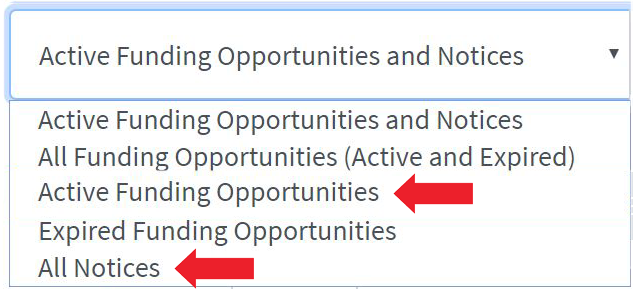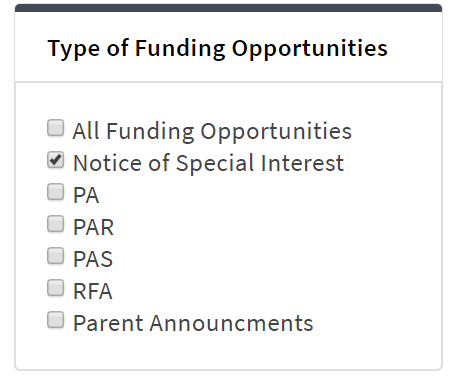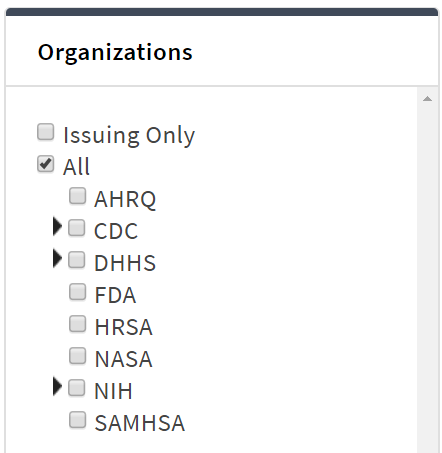Notice Number: NOT-DA-19-035
Key Dates
- Release Date: July 17, 2019
- Estimated Publication Date of Funding Opportunity Announcement: September 08, 2019
- First Estimated Application Due Date: October 05, 2019
- Earliest Estimated Award Date: February 01, 2020
- Earliest Estimated Start Date: February 01, 2020
Related Announcements: PAR-18-062
Purpose
The National Institute on Drug Abuse (NIDA) intends to reissue PAR-18-062 “Accelerating the Pace of Drug Abuse Research Using Existing Data (R01 Clinical Trial Optional)” to solicit applications proposing innovative analysis of existing social science, behavioral, administrative, and neuroimaging data to study the etiology and epidemiology of substance using behaviors (defined as alcohol, tobacco, prescription and other substances) and related disorders, prevention of substance use and HIV, and health service utilization.
This Notice is being provided to allow potential applicants sufficient time to develop meaningful collaborations and responsive projects.
The FOA is expected to be published in September 2019 with an expected application due date in October 2019.
This FOA will utilize the R01 activity code.
Details of the planned FOA are provided below.
Research Initiative Details
This Notice encourages investigators to submit innovative analyses of extant data, including new aims that are being addressed with existing data, new or advanced methods of analyses, or novel combination and integration of datasets to allow the exploration of new questions.
Strongly encouraged is the application of innovative methods or techniques from other disciplines that are novel to substance use and disorder research, such as utilization of systems science methodologies (e.g., agent based modeling, system dynamics modeling, network analysis) or geographic information systems (GIS). Use of multiple sources of data towards predicting substance use behaviors and solutions is also encouraged.
Grants under this announcement are not intended as a means to carry out currently ongoing data analysis, for the maintenance and distribution of data sets, or to analyze banked biospecimens for which data are not already available. Proposed research should be distinct from the aims and methods of the primary research under which the data were collected. For example, datasets collected for other purposes might be reanalyzed to address issues of health disparities and subgroup differences in the trajectories of substance use, prevention outcomes, and treatment utilization and outcomes including morbidity and mortality. Research using extant data that analyzes effects or outcomes that were not previously examined in the original scope of research is a priority for this announcement.






